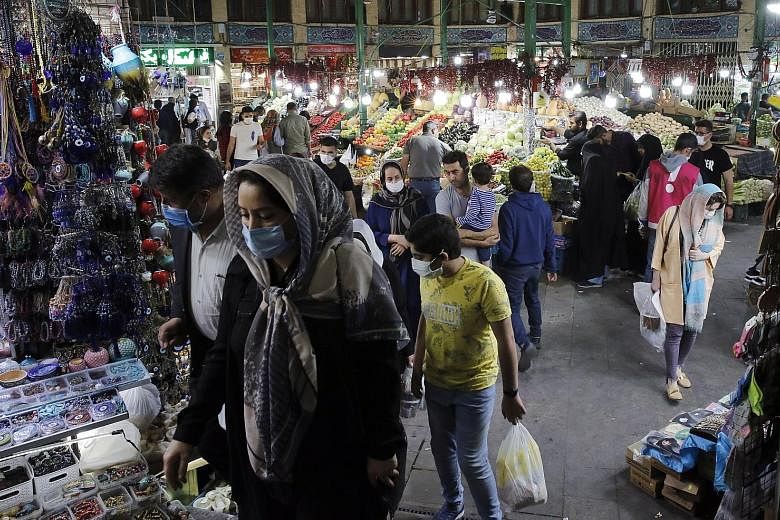WASHINGTON • Over the strenuous objections of its closest allies, the Trump administration reimposed United Nations sanctions against Iran on Saturday, though the weight of their repercussions is unclear without the cooperation of the world's other major powers.
In an evening statement, United States Secretary of State Mike Pompeo announced the "return of virtually all previously terminated UN sanctions" and, in effect, declared a 2015 nuclear accord with Iran as no longer in force.
"The world will be safer as a result," Mr Pompeo said.
He also warned that the US "is prepared to use our domestic authorities to impose consequences" on other countries that do not enforce the sanctions. He did not elaborate.
Minutes after Mr Pompeo's statement, the Iranian Ambassador to the UN, Mr Majid Takht Ravanchi, said the sanctions were "null and void".
"The US' illegal and false 'deadline' has come and gone," Mr Ravanchi wrote on Twitter.
He warned that America's "swimming against international currents will only bring it more isolation".
Just a day earlier, Britain, France and Germany said in a letter that the sanctions - which the UN had suspended after the signing of a 2015 nuclear accord - would have no legal effect.
To underscore their fundamental opposition, the letter said all three countries would work to preserve the 2015 agreement, which they jointly negotiated with the US, China and Russia, even as Washington sought to destroy its last remnants.
The Trump administration withdrew from the agreement more than two years ago.
"We have worked tirelessly to preserve the nuclear agreement and remain committed to do so," said the letter, a copy of which was viewed by The New York Times.
Some analysts said that by reimposing snapback sanctions, the Trump administration has splintered alliances and fractured understandings with the US' superpower adversaries, Russia and China, which had been unified in reaching the 2015 agreement.
Now the US has gone its own way, and Russia and China seem poised to resume conventional weapons sales to Iran next month when an arms embargo against Iran expires, over the objections of Washington.
"The irony I see here is that Trump is actually doing the UN and multilateralism a big favour, because by invoking the snapback, he is putting on display that the kind of clumsy unilateralism that he is known for doesn't work," said professor of international law Ian Johnstone of the Fletcher School at Tufts University.
He predicted that the sanctions would not be enforced by other countries and would be "met with a collective shrug".
"The US will insist that the sanctions are back on, and most other countries will say, 'No, they're not,'" said Professor Johnstone, who advised former UN secretary-general Kofi Annan.
In fact, the Trump administration's insistence on reimposing the original UN sanctions, which had been formulated during the Bush and Obama administrations to force Iran to the negotiating table, means that the US alone will enforce them.
That has raised doubts over whether the sanctions will bring much, if any, additional economic pain; one UN Security Council diplomat compared the US sabre-rattling to pulling the trigger of an unloaded gun.
The European Union has its own arms embargo against Iran that is not set to expire until 2023, once the International Atomic Energy Agency rules that the government in Iran has followed the terms of the nuclear deal.
Until such embargo is lifted, foreign diplomats predicted that companies and business employees in Europe would continue to adhere to it - making the UN sanctions largely irrelevant for Western allies.
NYTIMES

